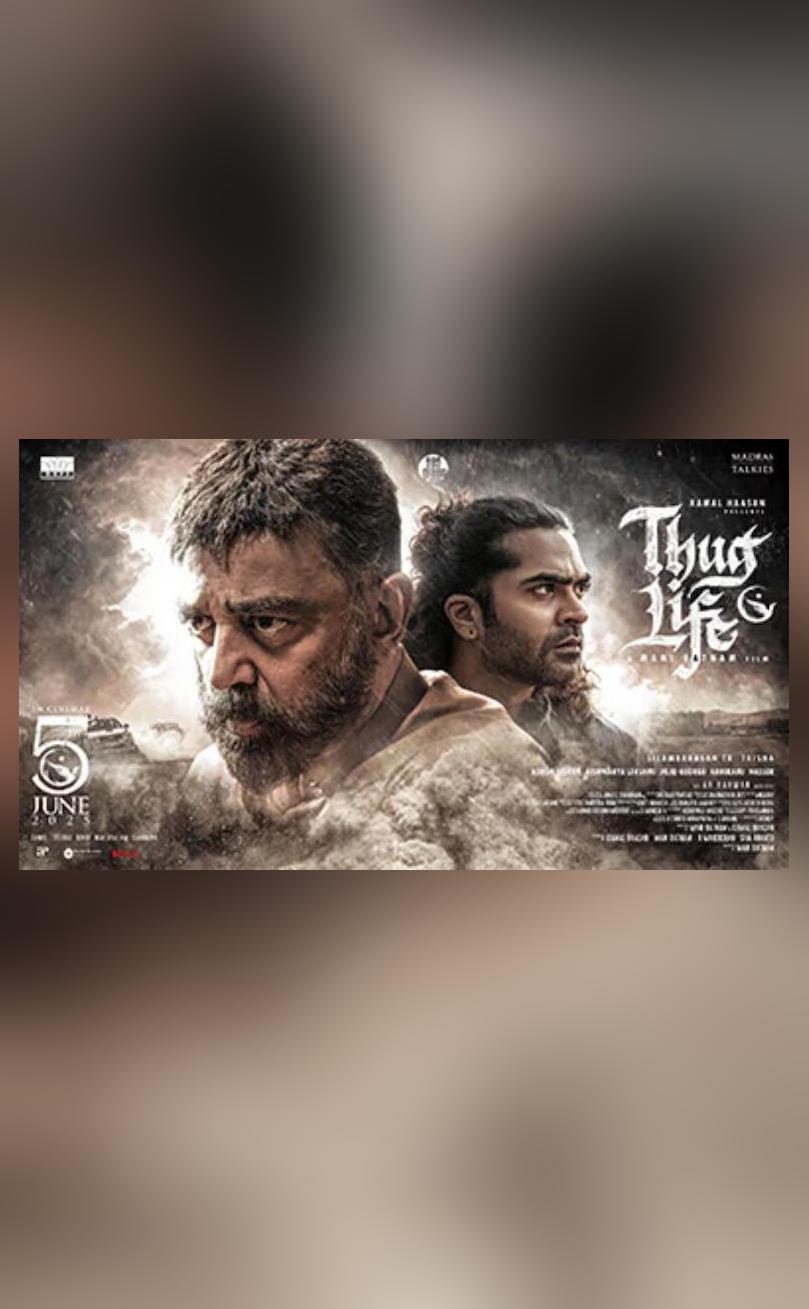
SC seeks K’taka govt’s reply on plea challenging ban on Thug Life
The Supreme Court has sought a response from the Karnataka government on a plea challenging the ban on the release of Kamal Haasan’s Tamil film ‘Thug Life’ in the state. The plea, filed by the producers of the film, alleged that despite being certified by the Central Board of Film Certification (CBFC), the ban on the film by the state government amounts to an unconstitutional restriction on free speech and expression.
The film, which is a gangster drama, was certified with an ‘A’ certificate by the CBFC, but the Karnataka government refused to grant permission for its release in the state, citing concerns over its content. The producers of the film, however, have argued that the ban is unconstitutional and violative of their fundamental right to freedom of speech and expression.
The plea filed by the producers of ‘Thug Life’ seeks to challenge the Karnataka government’s decision to ban the film on the grounds that it is an unconstitutional restriction on free speech and expression. The producers have argued that the CBFC has certified the film with an ‘A’ certificate, which means that it is suitable for release to adults, and therefore, the state government has no authority to ban it.
The plea also seeks to challenge the Karnataka government’s decision to ban the film on the grounds that it is violative of the principles of natural justice. The producers have argued that they were not given any opportunity to be heard before the decision to ban the film was taken, and therefore, the decision is arbitrary and unsustainable.
The Karnataka government, however, has defended its decision to ban the film, saying that it was taken after considering the content of the film and the potential harm it could cause to the public. The government has argued that the film contains scenes and dialogues that are offensive and could incite violence, and therefore, it is necessary to ban it to protect the public interest.
The Supreme Court has now sought a response from the Karnataka government on the plea, and it is expected to hear the matter soon. The court’s decision is expected to have significant implications for the film industry in Karnataka, as well as for the fundamental right to freedom of speech and expression.
Background
‘Thug Life’ is a Tamil gangster drama film directed by M. Hanifaru and starring Kamal Haasan in the lead role. The film was certified with an ‘A’ certificate by the CBFC, which means that it is suitable for release to adults. However, the Karnataka government refused to grant permission for its release in the state, citing concerns over its content.
The producers of the film, including Kamal Haasan’s production company, Raaj Kamal Films International, had approached the Karnataka government seeking permission to release the film in the state. However, the government refused to grant permission, citing concerns over the film’s content.
The producers of the film then approached the Supreme Court, seeking to challenge the Karnataka government’s decision to ban the film. The plea alleged that the ban is unconstitutional and violative of the fundamental right to freedom of speech and expression, and sought a declaration that the ban is invalid and illegal.
Constitutional implications
The plea filed by the producers of ‘Thug Life’ raises significant constitutional implications, as it challenges the Karnataka government’s decision to ban the film on the grounds that it is an unconstitutional restriction on free speech and expression.
The Indian Constitution guarantees the right to freedom of speech and expression, which is enshrined in Article 19(1)(a) of the Constitution. However, this right is subject to certain limitations and restrictions, which are enshrined in Article 19(2) of the Constitution.
The Karnataka government’s decision to ban ‘Thug Life’ is based on its contention that the film contains scenes and dialogues that are offensive and could incite violence, and therefore, it is necessary to ban it to protect the public interest. However, the producers of the film have argued that this decision is an unconstitutional restriction on free speech and expression, as it is not based on any objective criteria or standards.
The Supreme Court’s decision in this matter is expected to have significant implications for the film industry in Karnataka, as well as for the fundamental right to freedom of speech and expression. If the court upholds the plea, it could lead to a significant expansion of the right to freedom of speech and expression, and could have implications for the regulation of films and other forms of entertainment in the state.
Conclusion
In conclusion, the Supreme Court’s decision to seek a response from the Karnataka government on the plea challenging the ban on ‘Thug Life’ is a significant development in the ongoing controversy over the film’s release in the state. The plea raises significant constitutional implications, and the court’s decision is expected to have significant implications for the film industry in Karnataka, as well as for the fundamental right to freedom of speech and expression.
The success of the plea would be a significant victory for the producers of ‘Thug Life’, and would highlight the importance of protecting the fundamental right to freedom of speech and expression. On the other hand, a rejection of the plea could lead to a further erosion of the right to freedom of speech and expression, and could have significant implications for the film industry in Karnataka.
Whatever the outcome, the controversy over ‘Thug Life’ has highlighted the need for a nuanced and balanced approach to the regulation of films and other forms of entertainment in the state. The government must strike a balance between protecting the public interest and upholding the fundamental right to freedom of speech and expression.






